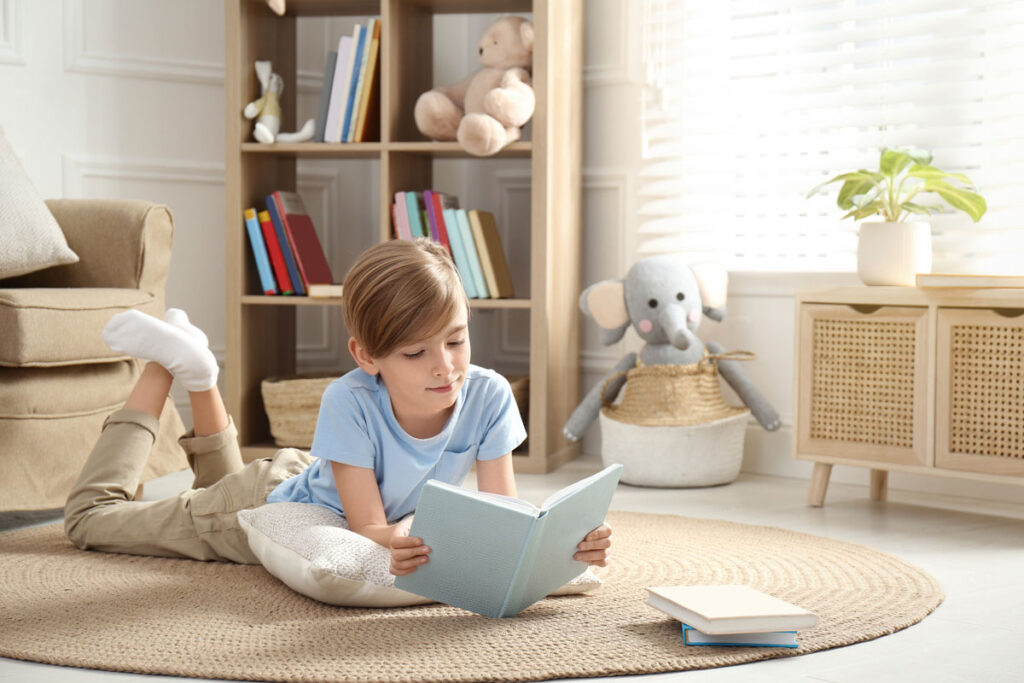The Perks of Being a Reader
By Amber Mabe

We hear it all the time: “Back in my day we did not have cellphones and video games. We read books and played outside!” As a person who grew up with both gaming consoles and a room full of books, I think balance is important when helping kids manage their free time. But after a year of online classes, Zoom meetings, and Facetime play-dates, my husband and I decided to challenge our son to read this summer. What started as an offer to pay him one dollar for every book he read soon turned into a full-fledged book addiction, including late night trips to bookstores trying to find the next book after being left on an unbearably precarious cliffhanger. In addition to being a wonderfully independent, quiet activity, reading has many other benefits for children and adults alike.
Reading Fosters Imagination and Creativity
My son was appalled at the first book I handed him that had no pictures. “How will I know what everything looks like?” The tiny, illustrated map on the first page created a framework of a world that soon came to life in his imagination. We giggled together over what the fantastical creatures might look like and gave each other wary glances when the villain came into the picture. One of the best things about reading is the endless possibilities of worlds and characters we create in our minds. This creativity spills over into other areas of life including imaginative play, creative writing, art, and problem solving. Most avid readers would agree that one perk of immersing yourself in a good book is the ability to leave the troubles of the real world behind for a little while, and dive into a different one full of the things you like the most.
Reading Expands Your Vocabulary
When I was in middle school, I read a series of books originating in the UK and came across the word “slough.” From the context I learned that a slough was a type of swamp, but was later mortified to learn that the word I was pronouncing in my head as rhyming with “cow” was actually pronounced “sloo.” Even though pronunciation mistakes can be embarrassing in retrospect, being exposed to new words is a valuable part of becoming not only a strong reader, but an eloquent speaker or writer. For young readers who are learning spelling and proper sentence construction, reading plays a large part in creating correct patterns of speech and helping them recognize when words “look right” versus being misspelled.
Reading Promotes Empathy
In a highly individualistic culture, opportunities to develop empathy can be rare. Although we are constantly exposed to the opinions of others through social media, true empathy is developed by learning to put yourself in someone else’s shoes and see life through their eyes. Studies have shown that people who read, especially those who read fiction, foster that ability to be transported into someone else’s experiences and feel what the character is feeling. Applying this empathetic reading to nonfiction genres such as history and biography can further develop social understanding. This expanded worldview can help children (and adults too) broaden their perspective and learn to treat others with kindness and respect.
Whether you or your child prefer e-books, listening to audiobooks in the car, or good old-fashioned ink on paper, reading is one hobby you can feel good about. When I catch my son bringing a book to the dinner table or in the car, or staying up late to read at night, it brings a smile to my face because that is something we will always have in common. He read five books just this week. He also played video games, watched television, and played with a lot of Lego bricks. But I am calling it a win.

